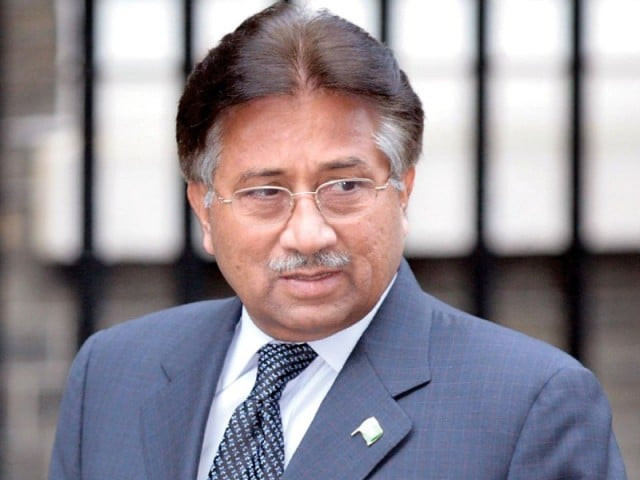Musharraf, his successors face notices over ‘enforced disappearances’
IHC says involvement of armed forces in acts amounting to violation of human rights weakens rule of law

The Islamabad High Court has directed the federal government to issue notices to former military ruler Gen (retd) Pervez Musharraf and all his successive chief executives of the country including incumbent PM Shehbaz Sharif as to why proceedings should not be initiated against them for subversion of the Constitution in context of the state policy on enforced disappearance.
"The Federal Government shall issue and serve notices on General (retd) Pervez Musharraf and all other successor Chief Executives i.e. the former Prime Ministers, including the incumbent holder of the office. They shall submit their respective affidavits explaining why the Court may not order proceedings against them for alleged subversion of the Constitution in the context of the undeclared tacit approval of the policy regarding enforced disappearances and thus putting national security at risk by allowing the involvement of law enforcing agencies, particularly the Armed Forces. The onus is on each Chief Executive to rebut the presumption and to explain why they may not be tried for the offence of high treason", read an order authored by IHC Chief Justice Athar Minallah in a matter related to missing persons.
Read more: IHC issues notice to NAB chief in Musharraf assets case
The court also said that perception of the involvement of law enforcement agencies, particularly the armed forces, in this grave crime against humanity was the most profound violation of public interest and policy.
The order read that the federal government shall consider the proposals and recommendations submitted by rights activist Amina Masood Janjua, the amicus curie appointed by the court, and furnish a report.
"In case the missing persons are [neither] recovered nor effective and demonstrable actions/decisions are taken by the Federal Government then the current and former Ministers of Interior shall appear in person to explain why the petitions may not be decided and exemplary costs imposed upon them for the unimaginable agony and pain suffered by the petitioners on account of lack of response and empathy while dealing with their grievances."
The court further noted that the attorney general for Pakistan (AGP) would satisfy it that in case of alleged disappearances in the future, why criminal cases might not be ordered to be registered against the chief executives of the federation and the provinces concerned.
The court directed its registrar to send a copy of this order to the interior secretary for compliance. “The latter [interior secretary] is directed to place a copy of this order before the worthy prime minister and members of the federal cabinet."
The order read that the existence of the phenomenon of “enforced disappearances” was intolerable and, more so, when overwhelming evidence manifested that it had remained and continued to be an undeclared tacit policy of the State.
“The Armed Forces have and continue to render sacrifices for the security and integrity of the country. They ought to be respected by every citizen otherwise the security and integrity of the country and its people is exposed to being jeopardised. The involvement or even a perception of the involvement of the Armed Forces in acts amounting to violation of human rights and freedom of the citizens weakens and undermines the rule of law. It definitely puts national security and integrity at risk.”
The court observed that the Constitution did not contemplate the existence of a “state within a state” and the framers had unambiguously intended a scheme of civilian control and oversight through chosen representatives.
“Any other form of governance would amount to subverting the scheme of the Constitution and thus exposing the perpetrators to be accountable under the high treason offence described under Article 6."
The order read that the federal government should take appropriate measures so as to enable the family members of the missing persons to inform the public regarding their grievances. “It shall also be ensured that there is no undeclared censorship observed by the print and electronic media."



















COMMENTS
Comments are moderated and generally will be posted if they are on-topic and not abusive.
For more information, please see our Comments FAQ